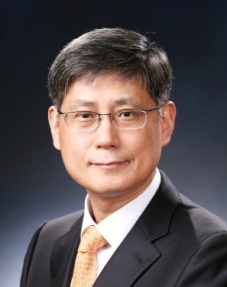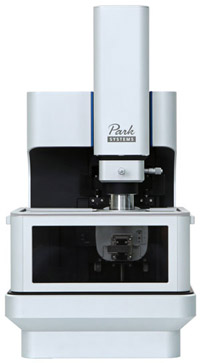The Latest Advances in AFM for Nanotechnology (NIST)

In proud partnership with the National Institute of Standards and Technology (NIST), Park Systems is proud to announce a free workshop and live demo to take place on Tuesday, November 14, 2017 at NIST’s headquarters in Gaithersburg, MD. The workshop will feature a technical seminar on the latest advances in atomic force microscopy (AFM) technology as well as a live demonstration of the Park NX10 AFM & SICM System, the quickest path to innovative research.
• Event Date and Time: Tuesday, November 14, 2017 from 10:00 AM to 3:00 PM
• Venue: NIST Headquarters — 100 Bureau Drive, Gaithersburg, MD 20899
The event is open to the local nanoscience community but due to the security requirements of the venue, advance registration is required. Please note the registration requirements below:
• US citizens and permanent residents only
o Register your attendance using your full legal name as it appears on a government-issued ID (e.g., Driver License, Green Card) AND bring this same ID with you to the event.
• All non-citizens (incl. permanent residents)
o Register your attendance THEN complete Form NIST-1260 attached to our confirmation email AND return to Park Systems by November 8 for processing by NIST.
Let us know if you have any questions when registering—failure to complete these extra steps will deny you entrance to NIST and our event.
Dr. Sang-il Park, CEO and founder of Park Systems, will be a featured presenter at the event. His talk will cover continuous innovations at Park Systems including the revolutionary Park SmartScan software, a pioneering AFM intelligence that produces high quality images with only a single click.
 Dr.Sang-il Park
Dr.Sang-il ParkChairman & CEO, Park Systems
 Park NX10 AFM & SICM System
Park NX10 AFM & SICM System w/ Faraday Cage
About NIST
The National Institute of Standards and Technology (NIST) was founded in 1901 and is now part of the U.S. Department of Commerce. NIST is one of the nation's oldest physical science laboratories. Congress established the agency to remove a major challenge to U.S. industrial competitiveness at the time—a second-rate measurement infrastructure that lagged behind the capabilities of the United Kingdom, Germany, and other economic rivals.
From the smart electric power grid and electronic health records to atomic clocks, advanced nanomaterials, and computer chips, innumerable products and services rely in some way on technology, measurement, and standards provided by the National Institute of Standards and Technology.
Today, NIST measurements support the smallest of technologies to the largest and most complex of human-made creations—from nanoscale devices so tiny that tens of thousands can fit on the end of a single human hair up to earthquake-resistant skyscrapers and global communication networks.
We invite you to explore our web site to learn about our current projects, to find out how you can work with us, or to make use of our products and services.
